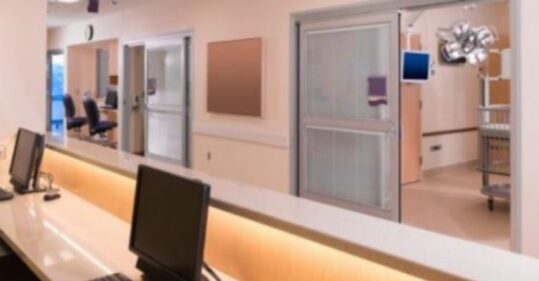More than one in ten nursing posts unfilled in Northern Ireland

More than one in ten nursing posts in Northern Ireland were vacant at the end of last year, resulting in £115m spent on temporary staffing, the Northern Ireland Audit Office has revealed.
The NIAO report, published last week, showed the nursing vacancy rate rose from 3.2% in 2014 to 11.5% in 2019, with 2,100 posts unfilled last year in Northern Ireland.
It pointed to the Department of Health decision to cut the training budget for pre-registration nursing as a contributing factor to ‘rising vacancy levels and increased reliance on more temporary staff’.
Related Article: New digital support for community nurses in 10-year plan
The training budget fell from an annual average of £30.1m between 2008 and 2011, down to £28.8m between 2011 and 2017, resulting in 732 fewer trainee places.
Comptroller Kieran Donnelly, who compiled the report, said the reduction in the training budget had left employers ‘with an insufficient staffing pool to cope with rising demand for care’.
He continued: ‘At a time when the focus should have been on growing the nursing and midwifery workforce, short-term savings were instead pursued.’
To offset the shortfall, the NHS in Northern Ireland spent £115m on nurse agency fees in 2018/19, up from £14.6m in 2006/07, it found.
It also revealed that some trusts paid as much as £1,700 for a single agency nursing shift on a bank holiday in 2018/19.
Mr Donnelly said the ‘reliance on temporary nurses’ has not only led to ‘soaring costs’ but ‘can compromise the quality and safety of patient care as staff are deployed in less familiar clinical settings’.
Related Article: Nurse had to ‘freeze’ PPE during pandemic to re-use in care home, Covid inquiry hears
‘It is clear that this does not represent value for money,’ he added.
The Department of Health in Northern Ireland has since commissioned an average of 974 training places between 2017-18 and 2020-21, with 1,210 places commissioned in 2020-21.
Mr Donnelly continued: ‘The department has recently taken important steps to counter the situation through considerably increasing the number of nursing and midwifery training places and by publishing a health and social care-wide workforce strategy.
‘However, substantial further action and monitoring, as well as achieving progress in reconfiguring services, will all be essential to building a sustainable and more cost-effective workforce.’
Related Article: Tell us what practice nursing means to you and potentially win £1,000
The report comes following unprecedented strike action over December 2019 and January this year, as nurses in Northern Ireland walked out over staffing and pay.
Unions suspended the strikes following talks with the Department of Health, which offered additional funding to restore pay parity and promises on safe staffing levels.

See how our symptom tool can help you make better sense of patient presentations
Click here to search a symptom




